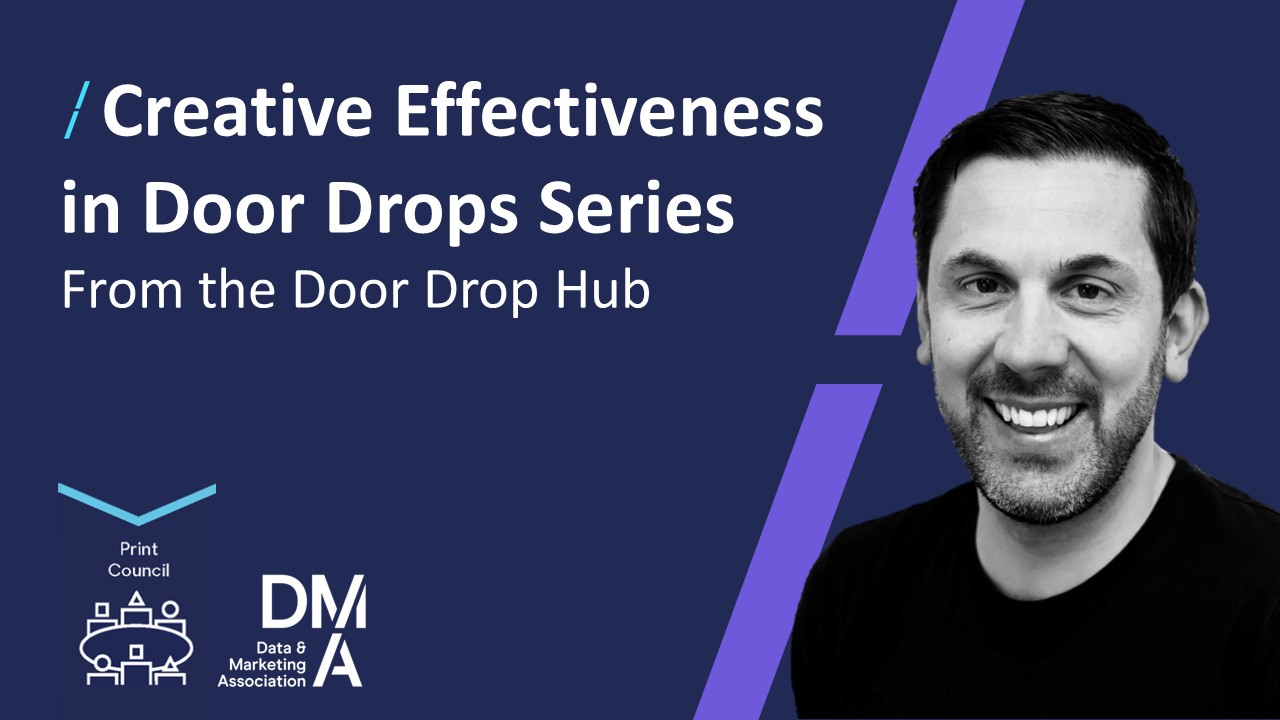Data & Marketing
16 Jul 2020

Data & Marketing
Data is one of the most important aspects of any marketing campaign. Both online and offline, data is vital to the success or failure of your marketing. We could talk about big data and using data to influence your campaign. But if you haven't gotten the basics correct, the other data marketing techniques won't be as effective. So what are the basics? Keeping your data clean and what data can you buy and why. This could be your customer database or prospect data. In this guide, we will go through tips on how to keep your data clean and what data is available to buy.
Clean data?
What is clean data? By clean data, we mean, how reliable is your data? Is it up to date? Is it GDPR compliant? All these different factors and more come into play when you talk about data. In an average month, over 100,000 people move house and unfortunately, thousands pass away. As you can see, it's imperative you keep on top of your data.
Benefits of clean data?
- Royal Mail offers massive discounts on campaigns that have clean data.
- Better conversion rates as you are not sending your marketing to people who are no longer at the address.
- Less wastage, so better for the environment. You are only printing what you need.
- Ensuring you are GDPR compliant.
Your own customer database.
Your customer database is one of the most valuable assets within your company, and just like an expensive grand piano, without regular cleaning and tuning, it won't be as good as it could be.
So how do you clean your data? There are a few things EVERY marketer should be doing right off the bat.
Suppression list
Suppression lists were mandatory under the GDPR legislation in 2018. For a good reason too. It gives consumers the power to opt-out of emails, leaflets, mail and so on. Many email campaign builders such as MailChimp do this automatically, so you don't need to worry about it.
But how do you suppress customers who don't want to receive offline marketing from you? The first step is to make sure you are including an opt-out message on all your direct mail. This message should have an email address (usually the Data Protection Officer's email). Then it's a simple case of keeping a separate database of those who opt-out and removing them from the active database. You should also be doing this for returns. Any campaign mail that has been returned should be sorted then the consumer's details should be removed from the active database.
Cleaning your database
Your database degrades by around 30% every year. So if you didn't manage your database, after one year, nearly one third would be unusable!
How do you go about cleaning your data? Most mailing houses offer data cleansing services. You securely send them your data, and they run that data through their system. They are finding incomplete addresses, house movers and goneaways. This information will be presented back as a report showing how much of your data is accurate. The report is generally a free service, and then you will be charged upon which cleanse you pick.
Let's go through what a cleaning report will look for.
PAF
Postal Address Finder - Address Verification. Your data gets ran through Royal Mail's central database to check the data on your file matches Royal Mail's. You would be looking for a score of 95% or higher to qualify for Royal Mail's discounts.
MPS
Mailing Preference Service - Double checks your suppression file against a national one.
DeDupe
De-Duplicate - Removes duplicates. Can be based on the following: First and last name, last name, household.
Movers
People who have moved and are traceable, usually people who have used the postal mail forwarding service.
Goneaways
People who are no longer at the address and are not traceable.
Deceased
People who have unfortunately passed away.
The cost of cleaning the report will differ depending on how much cleaning needs to be done. We recommend cleaning your data every three months and just before every campaign.
Buying new data
Offline marketing methods such as direct mail can boast conversion rates of 4% compared to email's 0.12%. It pays to use offline marketing to capture new customers. But how do you get the data to accurately target them if you don't have your own prospect list? You buy it. This sounds simple, but it can be quite tricky as there are many different data types. Let's take a look at each one.
New Data
This is nice and simple. You use filters on top of your mosaic profile to accurately target your demographic profile or narrow the data to fit your budget better.
For example, you may only want data for 50,000 named addresses, which fall in the B05: Premium fortunes Mosaic type to fit your budget. Or you may want to target a certain region. Here you can filter by postcode regions within the B05: Premium fortunes Mosaic type.
Co-op Data
Co-operative data is the same as buying new data with one additional filter, transactional data. This filter tells you that a consumer is actively buying products within your product price point. The data houses obtain this information by asking their customers, I.E. you, to share their order report file after a mailing has been sent out. They then run a report that matches the customers who have ordered, against customers who bought a product. This is called a match back report (also a great way of measuring how successful your campaign was).
The upside of co-op data is that it is generally cheaper than standard profiled data and can be more successful due to the highly targeted nature of transactional data. The downside is you must share your results and therefore, in theory, you could be helping your competition.
Co-op data does not allow you to ask for specific companies data as this breaks GDPR protocol. To be part of the co-op data pool, you must also amend your GDPR documentation and ask your customers to opt-in to sharing data with third parties. Additionally, co-op data is not available to financial companies but works best for the retail industry.
Data Swapping
Data swapping used to be extremely prevalent. However, since the introduction of GDPR, this has pretty much ground to a halt. But if you and the company you are swapping data with have clauses in your GDPR documentation and your customers opt into sharing their personal info with third parties. There is no reason why this still couldn't be a viable system of getting data. This works particularly well if you have two business who have the same customer demographic and no conflict of interest.
Lifestyle Data
As with data swapping, lifestyle data was much more prevalent before GDPR became the law. You used to be able to buy data on people on all sorts of lifestyle changes such as babies being born and more. Now, you are limited to house movers, birthdays or age-specific data that allows
you to target people over a certain age. Be aware that house movers data becomes more expensive the closer to the move date you are (typically £450 per 1000 for the week of the move or £110 per 1000
six months after the move). We recommend being vague when designing your advert. As the message can come across as intrusive if a prospect gets an advert saying happy birthday from a company they never heard of before. This data is not illegal, but the perception can be portrayed as such.
Partially addressed
Partially addressed mail was introduced as an incentive by Royal Mail to stimulate the market again after the GDPR changes were introduced on the 25th May 2018. This data carries no personalisation making it 100% GDPR compliant. You are marketing to the house, not the people living there. All the same filters and profiling is still available to you as with all other available data we have covered. But the cost is significantly lower. Typically you can expect to pay £3000 for 750,000 records. Because you can't use names on the addresses, you can set salutations such as "Dear chocolate lover" or "Dear chief tea maker" to grab the consumers attention.
Conclusion
Getting your data cleaned and then keeping on top of it is the piece of advice our expert marketing consultants give out the most. It pays dividends to do so. As offline marketing specialists, PSE can handle your entire data handling requirements, including a free data profile. Contact us today:
Web: www.offlinemarketing.co.uk
Tel: 0207 022 9825
Email: contact@offlinemarketing.co.uk
PSE - Marketing you cant trust





Please login to comment.
Comments